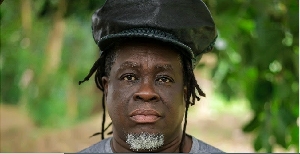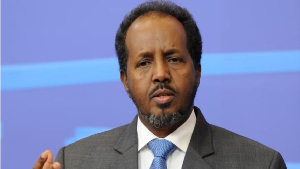Accra, May 21, GNA - Hajia Alima Mahama, Minister of Women and Children Affairs has called for the inclusion of more women in peace-building initiatives, because of the significant role they played as social educators, mediators and peace-builders. She said in spite of women's role in peace building, their participation in peace negotiations and peacekeeping missions still remained low.
"Not withstanding the fact that women do not take part in decisions leading to armed conflicts, they bear the brunt of war and also put together the pieces after the carnage and destruction of lives and property.
"Thus there is the need to institutionalize women in peace and security operations by engendering peacekeeping, negotiations and management processes", she said. The Minister made the call on Monday at the opening of a four-day forum to examine the role of women in peace building at the Kofi Annan International Peacekeeping and Training Centre (KAIPTC) at Teshie near Accra.
The Women Peace and Security Network-Africa, a pan-African women peace building organization, the ECOWAS Gender Unit and the KAIPTC are organizing the forum with funding from the German Technical Cooperation.
The forum is intended to review the experiences of women in conflict prevention, management, resolution, peacekeeping, peace building and post conflict reconstruction in West Africa. It also seeks to provide a platform for women's peace activists, policy makers and other stakeholders to share their experiences and discuss best practices and long-tern prospects for women in Africa.
About 40 international participants mainly from women's groups, sub-regional entities and UN agencies are attending the forum.
Hajia Mahama noted that institutionalizing women in peace building would entail addressing shortfalls in peacekeeping processes, which had hitherto focused on short-term measures initiated and administered by organizations that were "traditionally male-dominated, patriarchal, and hierarchal" and whose recruitment processes have followed gender insensitive rules and regulations".
She said it was only when such shortcomings were addressed that, those women's involvement and visibility in peace and security in Africa would increase.
The Minister held that the environment to institutionalize women in peace building in the sub-region was conducive and the prospects great, because the last few years had seen increased international and regional commitment to issues of women, peace and security.
She said experiences from women in countries like Liberia, Guinea Bissau, Sierra Leone, Cote d'Ivoire and Senegal and various strategies employed by women in their efforts to manage and resolve conflicts and build peace had brought hope and amply demonstrated that women's presence in peacekeeping and peace building processes made a difference. Hajia Mahama however admitted that increasing the participation of women in peace building and security issues also came with its own challenges.
These include dealing with the exposure of female peacekeepers to acts of violence, dangerous conditions and possible death, restructuring male dominated military and police institutions, reviewing existing recruitment laws and regulations in order to mainstream gender concerns and financial resource constraints. She asked the participants to deliberate extensively to come out with recommendations that would be useful in the preparation for the implementation of the United Nation's Resolution 1325 on Women Peace and Security.
Major General John Attipoe, Commandant of the KAIPTC noted that in post conflict environments, the admirable role women played during conflicts were hardly taken into consideration in reaching and negotiating peace agreements.
He said the views and interest of women were not sufficiently integrated into peace agreements, often contributing to the probability of conflicts reoccurring.
The Commandant said the traditional secondary role of women in African societies had meant that, even when they were engaged in peace building, their views were often not taken serious, saying, "Any human endeavour which excludes women, amounts to operating at less than full human capacity". "Certainly, building upon the energy of women would give us an insight into the thinking of half of the human race. It would reflect the position of a crucial peace constituency, and thus, enhance the successes of peace building efforts", he said. Maj. Gen. Attipoe reminded the participants of the importance of the ECOWAS Mechanism for Conflict Resolution, Management and Peacekeeping and asked them to make full use of the regional instrument during their deliberations. 21 May 07
General News of Monday, 21 May 2007
Source: GNA












